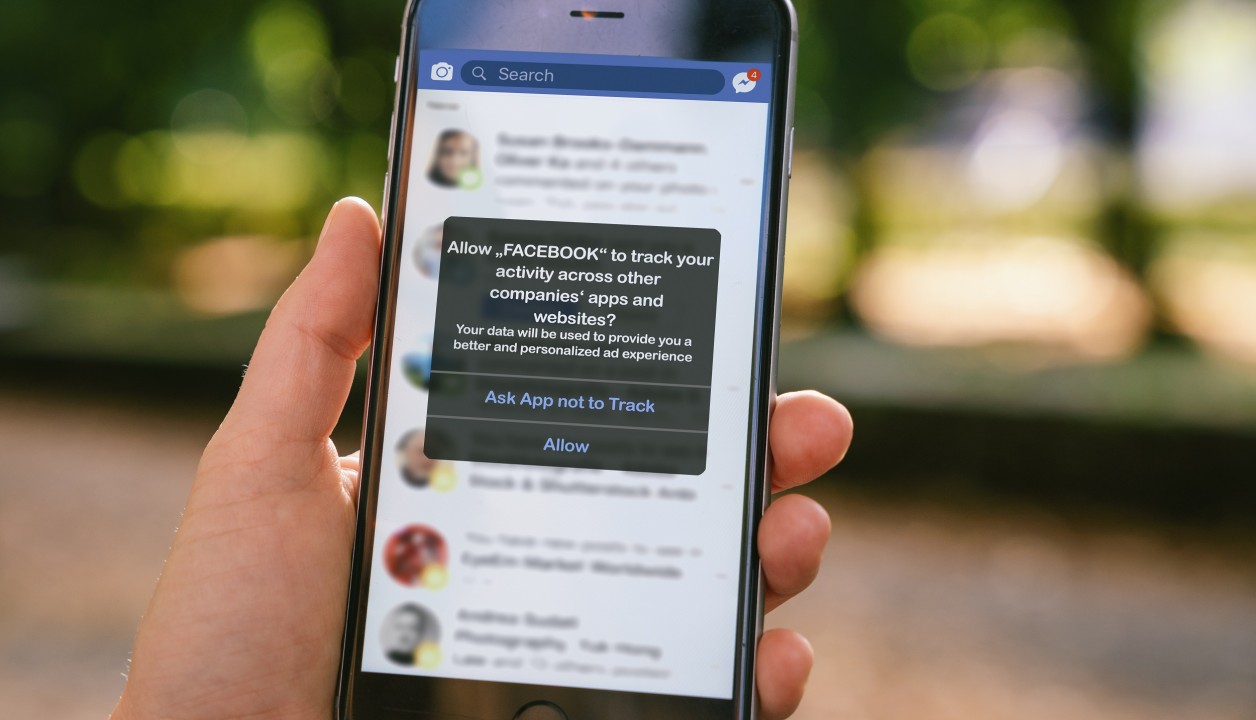
Apple Vs. Facebook – Who Will Win The Data Privacy War?
Did you know the average app includes six third-party trackers that collect and share your online data?
The war over data privacy continues to heat up in the tech world. Two of the world’s biggest technology companies, Apple and Facebook, are taking very different approaches to user privacy, and their decisions are having ripple effects throughout the tech community.
Apple’s New Transparency Requirement
Apple’s new App Tracking Transparency feature, which will automatically be enabled on iOS in early spring, forces app developers to explicitly ask for permission from users to track and share information for cross-platform ad targeting.
With App Tracking Transparency, Apple requires every iOS app to ask you upfront if they're allowed to share your information with data brokers and other networks, so they can serve mobile ads to you and measure your response to those ads.
After this change is in place, you’ll see a notification the first time you launch any new app on your phone, explaining what the proposed third-party tracker is used for, and whether you want to approve or reject the tracking and sharing of your data.
Facebook CEO Mark Zuckerberg criticized Apple’s new changes publicly, saying they were specifically put in place to put Facebook at a disadvantage. Zuckerberg says Apple is Facebook’s biggest competitor.
But while Apple is adding more privacy features to give its users more control, Facebook is moving in the other direction.
The Thin Line Between WhatsApp and Facebook
Facebook recently announced changes to the WhatsApp Privacy Policy that have some users outraged.
Right now, WhatsApp has some features that allow users to communicate with businesses through WhatsApp chat—and some of those businesses are hosted by Facebook. According to the new policy, messages between the prospect or customer and the business they’re communicating with could be collected and shared with the larger Facebook ecosystem.
That means Facebook and its advertisers could potentially use customer service chats or transaction receipts for marketing and advertising purposes.
The content of users’ individual chats will continue to be encrypted, so they cannot be seen by the company. The data within those chats will not be harvested or shared with third parties. Nonetheless, Facebook faced a huge backlash against the new rules after the announcement, prompting them to publish an FAQ page to clarify the policy and reassure upset WhatsApp users.
The pushback was big enough that Facebook decided to delay the rollout of the new rules (originally slated for February) to May 15th. In mid-May, WhatsApp users will need to accept the new Privacy Policy terms, or lose access to their accounts.
For many WhatsApp users, this announcement was a distinct reminder that WhatsApp users are now Facebook customers, and over time, Facebook will be moving information between the two platforms more often, in the name of “interoperability.”
Transparency: Winning Hearts and Minds in the Tech World
Apple and Facebook often take different approaches to user privacy. More and more, Apple seems to be taking steps to be more transparent and to protect user data, including regulating app developers in their ecosystem.
Meanwhile, Facebook has trouble gaining the trust of many of its users, and the common assumption is that the company prioritizes the needs of its advertisers over the privacy of its users.
Clearly, the market is sensitive to privacy issues, and they want companies to be more transparent – as evidenced by the backlash to Facebook’s recent WhatsApp announcement.
In the long run, I believe the companies that are more transparent with their users and take a stand to protect data privacy will be the ones who succeed – but only time will tell.
AI is going to impact businesses of all shapes and sizes across all industries. Discover how to prepare your organization for an AI-driven world in my new book, The Intelligence Revolution: Transforming Your Business With AI.
Thank you for reading my post. Here at LinkedIn and at Forbes I regularly write about management and technology trends. To read my future posts simply join my network here or click 'Follow'. Also feel free to connect with me via Twitter, Facebook, Instagram, Slideshare or YouTube.
About Bernard Marr
Bernard Marr is a world-renowned futurist, influencer and thought leader in the field of business and technology. He is the author of 18 best-selling books, writes a regular column for Forbes and advises and coaches many of the world’s best-known organisations. He has over 2 million social media followers and was ranked by LinkedIn as one of the top 5 business influencers in the world and the No 1 influencer in the UK.
🌐 C-Suite to Boardroom Experience 🌐 Trained & Skilled in Multiple Disciplines 🌐 Telco Planner & Architect 🌐 ICT & Digital Transformation Leader 🌐 Regulatory Expert 🌐 Oil & Gas Supplier 🌐 Market Entry Strategist
7mohttps://www.linkedin.com/feed/update/urn:li:activity:7105528572571787266/
remodeling homes at Jim's Real Estate
3yThanks for sharing
The key differene is that Apple and Facebook have different business models. Apple is a hardware and software vendor and, in thoery, user data is irrelevant for their selling and revenue. Facebook is "free" for users, but I guess they earn money selling data to companies. Whtasapp was free for users for a long time, but who would pay for their long time investments? It would come the day that they will have to pay investors and make profits. And how would they do? Using users data.
HELP University
3yThe Rigtified With Two